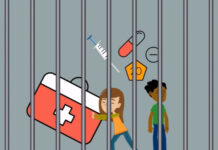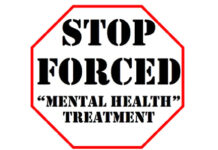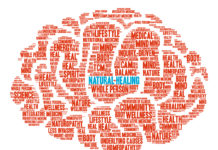The Case of the Missing Schizophrenia
This past Thursday I attended the American Psychiatric Association's Institute for Psychiatric Services in San Francisco, and then a talk by the Bay Area Mandala Project on "Providing Loving Receptivity Can Help People in Extreme States." I would like to thank both groups for the motivation to publish this — particularly as they would seem to be at odds in the reductionist "dialogue" we so often have — but really aren't so different in my mind for reasons discussed herein: Who is not "in crisis" for questioning their identity and fit within dominant paradigms?
Challenging the Ongoing ICD 10 Revision: How You Can Help
Mental health policy does not sound exciting. It is - you’ll just have to take my word for it-, but even if you don’t, you might agree with me that it’s crucial. Mental health policy shapes mental health legislation, and mental health legislation shapes issues such as consent, access, equal opportunities and de-institutionalisation, to name but a few. Influencing policy is key to reframing the debate around mental health, and changing the reality on the ground for people with lived experience. With this in mind, here is an introduction to Mental Health Europe’s work on the revisions to ICD 10, and a call to action, for you to get directly involved in this international debate.
The Curious Case of over 50 Consecutive ECTs in Melbourne
Over the past few weeks I have been witness to, and increasingly involved in trying to stop one of the most extreme examples of psychiatric brutality I have encountered in my 40 years in this field. And I have encountered quite a few. I suggest you sit down before watching and reading. This is not your usual, run-of-the-mill psychiatric abuse story.
Psychosocial Disability and Legal Capacity: Don’t Bargain with Human Rights
For persons with psychosocial disabilities, one of the most fundamental rights laid out in the CRPD is the right to equal recognition before the law and legal capacity (Article 12). Our latest Position Paper focuses on Article 12 of the CRPD.
Upon Leaving Soteria-Alaska
Soteria-Alaska, a program modeled after the highly effective Soteria developed in the 1970s by the late Loren Mosher, M.D., opened its doors in 2009. It is also impossible to convey the actual simplicity which in fact is the crowning jewel of the Soteria approach. A conservative review of the effectiveness of the Soteria approach revealed that it is at least as effective as traditional hospital-based treatment — without the use of antipsychotic medication as the primary treatment. Considering that people treated in the conventional way die on average 25 years younger than the general population, this is a substantial finding.
My Shock Survivor Story
I don't usually talk about this much because it's still somewhat traumatizing. I don't really do advocacy around shock treatment because it still triggers too much stuff. But this is a modern day advanced story of medical harms and misinformation, and you should comment on the FDA ruling.
My Response to the FDA’s ECT Rule Change
I lived through forced ECT from 2005-2006 at the Institute of Living in Hartford, Connecticut. My experience with ECT was the impetus for me to become involved in the antipsychiatry and Mad Pride movements, although I am not entirely opposed to voluntary mental health treatment. The following is the comment I submitted to the FDA on its proposal to down-classify the ECT shock device.
“State of the Re:Union Short: Soteria”
State of the Re:Union, a public radio project that tells "the story of America, one story at a time," devotes a show to stories...
Truth and Reconciliation: An Evening of Sharing and Healing
On Wednesday, March 20, 2016, Rethinking Psychiatry collaborated with The M.O.M.S. Movement and The Icarus Project to host our first Truth and Reconciliation Circle for Receivers and Givers of Psychiatric and Mental Health Services. In this three-hour event, both receivers and givers of psychiatric and mental health services expressed their thoughts and feelings in a structured, facilitated environment.
Myths are Used to Justify Depriving People Diagnosed as Mentally Ill of Their Human...
Despite the fact that no one in history, not even the omnipotent American Psychiatric Association -- which produces and profits mightily from the "Bible" of mental disorders -- has come up with a halfway good definition of "mental illness," and despite the fact that the process of creating and applying the labels of mental illness is unscientific, any of those labels can be used to deprive the person so labeled of their human rights. This is terrifying. It ought to terrify those who are so labeled and those who are not, because deprivation of human rights on totally arbitrary grounds is inhumane and immoral.
CHOICES Back on Track
Last year I reported that CHOICES, Inc. had lost its way and was implementing an ACT team. There is no doubt in my mind that CHOICES was on the wrong path, but the new Executive Director is committed to getting CHOICES back to a peer-run program.
CRPD Absolute Prohibition Campaign and Course
For a long time I have been interested in offering a course on CRPD (Convention on the Rights of Persons with Disabilities) to pass on my knowledge to other activists and allow more people to take up the frustrating and passionate responsibility of human rights work. Finally I have come up with a plan that is doable.
Launching Our Peer Respite Initiative
This week we launched PeerRespite.net, a website dedicated to information and resources regarding peer respites in the U.S. As part of the initiative, recruitment is open for the 2015 Peer Respites Essential Features Survey.
40 Days to Tell the #FDAStoptheShockDevice
Please join us in demanding that the FDA stop the shock device from being down-classified to a Class II device. We have until March 28th, 2016.
Changing the World and Other Extreme Sports
By Dani, Director at Afiya
For anyone who’s unfamiliar, Afiya is the first peer-run respite in Massachusetts and it is one of only about 18 in the country. It’s no surprise, then, that people are confused about how we do things. But, it’s not just confusion. I’ve come to realize there is actual defensiveness that arises at times when we talk about what we do at the house. If I’m wearing my activist hat, this can be supremely annoying.
Open Dialogue Approach Reduces Future Need for Mental Health Services
The Open Dialogue psychiatric treatment approach is associated with reduced utilization of mental and general health services for Danish youth.
Pushing for an Informed Consent Benzo Bill in Texas
Dr. Raymond Armstrong and I are currently working together to push Texas lawmakers to adopt restrictions on the prescription of benzodiazepines and sleep drugs. We feel fortunate to be able to draw from the experience of the benzo movement in Massachusetts, and we are grateful for the information that long time advocates like Geraldine Burns have provided us.
Massachusetts Launches New Strengths-Based Early Psychosis Program
ServiceNet, a mental health and human service agency in western Massachusetts, received a three year, two million dollar grant to launch a program designed to support young adults who have recently experienced their first episode of psychosis. The Prevention and Recovery Early Psychosis (PREP) program is funded by the Massachusetts department of mental health and is designed to treat psychosis as a symptom, not an illness, resulting from other illnesses, substance abuse, trauma, or extreme stress.
Reimagining Healthcare
The conventional Western classification systems of health conditions are based on flawed science shaped by reductionist, hierarchical, and profit-driven ideologies. THEN wants to create a new paradigm built upon principles drawn from systems science, the life course perspective, developmental neurobiology, and other evidence-informed studies.
Disobedience: What Can We Risk?
It is possible to heal, and at the same time healing also means restoring the part of oneself that can face violence and disobey to protect what is most sacred. I am that sacred, and so are you.
LERNing Through Research, Advocacy, and Experience
The Lived Experience Research Network Issue Briefs series promotes change through multiple perspectives. We recently launched our inaugural Fall 2013 edition of the LERN Issue Briefs series. These two-page briefs highlight issues of importance in the behavioral health and disabilities fields.
Campaign Against Drugging of Foster Children
-The US National Center for Youth Law has launched an "action campaign" to persuade government officials to reduce the psychiatric drugging of children in foster care.
“Hearing Voices: tracing the borders of normality”
-Rhianna Goozee discusses the development of the Hearing Voices Movement and how research has blurred the lines between "healthy" and "normal" minds.
Hearing Voices, Emancipation, Shamanism and CBT: Thoughts After Douglas Turkington’s Training
When Doug Turkington, a UK psychiatrist, first announced to his colleagues that he wanted to help people with psychotic experiences by talking to them, he was told by some that this would just make them worse, and by others that this would be a risk to his own mental health, and would probably cause him to become psychotic! Fortunately, he didn’t believe either group, and in the following decades he went on to be a leading researcher and educator about talking to people within the method called CBT for psychosis.
“Hearing Voices: The People Who Say Talking Back is the Only Answer”
Journalist Emma Reynolds profiles Amanda Waegeli, Ron Coleman, Nathan Grixli and Lyn Mahboub about their experiences coming to the Hearing Voices Network (HVN). HVN was established 10 years ago in Australia and provided a support group that encouraged people to listen to their voices rather than trying to block them out. The group now operates in 25 countries.















